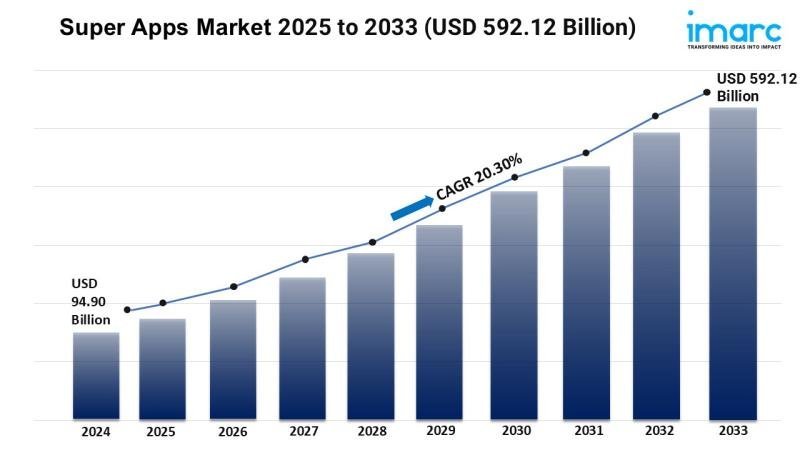According to a research report published by Spherical Insights & Consulting, The Global Enterprise Resource Planning (ERP) Market Size was valued at USD 69.76 Billion in 2023 and is Expected to reach USD 175.87 Billion By 2033, Growing at a CAGR of 9.69% from 2023 to 2033
The Global Enterprise Resource Planning (ERP) Market research studies offer an in-depth analysis of current industry trends, development models, and methodology. Production processes, development platforms, and the actual product models are some of the variables that have a direct impact on the market. The aforementioned characteristics can drastically vary in response to even minor changes in the product profile. The study provides a thorough explanation of each of these elements of Information & Technology.
Get a Sample PDF Brochure: https://www.sphericalinsights.com/request-sample/8824
Comprehensive historical analysis of global market for Enterprise Resource Planning (ERP) Market has thoroughly analyzed in this report. It offers data and insights from 2019-2022, and provides extensive market forecasts from 2023-2033 by region/country and subsectors. It covers the price, sales volume, revenue, historical growth, gross margin, and future outlooks for the Enterprise Resource Planning (ERP) Market.
The international industry that offers ERP software solutions and services to companies in a variety of industries is known as the global enterprise resource planning (ERP) market. ERP systems combine manufacturing, finance, human resources, supply chain management, and customer relationship management (CRM) into a single, cohesive system. ERP solutions have evolved continuously from basic inventory management software to the foundation of a business’s digital transformation.
ERP cloud computing solutions are currently transforming how companies handle financial data and inventory levels. They make it simpler to monitor inventories, handle purchase orders, and make sure their company operates effectively. ERP systems’ increasing popularity is a sign of the scalability and flexibility of software solutions. Furthermore, the ERP market is expanding quickly right now.
Buy Now Full Report: https://www.sphericalinsights.com/checkout/8824
During the projection period, the on-premise sector is anticipated to develop at a noteworthy compound annual growth rate (CAGR) and maintain its significant share from 2023.
The global enterprise resource planning (ERP) market is divided into two segments based on the method of deployment: on-premise and cloud. The on-premise category, which accounted for the largest portion of these in 2023, is anticipated to expand at a noteworthy CAGR over the course of the forecast year. It may be said that the necessity for data management and protection is what is driving the expansion. Organizations handling sensitive data, like the government, healthcare, and financial sectors, frequently choose on-premise ERP because it gives them control over data inside their infrastructure, allaying worries about third-party access.
The finance industry, which held the largest share in 2023, is expected to expand at an impressive compound annual growth rate (CAGR) during the course of the projection period.
Based on the function, the global enterprise resource planning (ERP) Market is categorized into finance, HR, supply chain, and other. Among these, the finance segment accounted for the highest share in 2023 and is anticipated to grow at a remarkable CAGR during the forecast period. The growth can be attributed increasing demand for better data protection and cybersecurity in financial operations is driving ERP adoption. Finance agencies prioritize software that protects sensitive financial data due to the rise in cyber threats. ERP companies are increasingly using advanced security features like data encryption, multi-factor authentication, and regular security updates to ease these concerns.
Over the forecast period, North America is expected to hold the greatest share of the worldwide enterprise resource planning (ERP) market.
Over the forecast period, North America is expected to hold the greatest share of the worldwide enterprise resource planning (ERP) market. The expansion can be ascribed to the increasing incorporation of machine learning and artificial intelligence (AI) into ERP systems. Tools with AI capabilities are being introduced to analyze vast amounts of data, automate time-consuming chores, and produce informative results. Businesses are using these capabilities to improve consumer experiences, anticipate market trends, and streamline processes. Predictive maintenance, inventory control, and financial forecasting are further areas where AI and machine learning are becoming increasingly significant.
Competitive Analysis:
The report offers the appropriate analysis of the key organizations/companies involved within the Enterprise Resource Planning (ERP) Market along with a comparative evaluation primarily based on their product offering, business overviews, geographic presence, enterprise strategies, segment market share, and SWOT analysis. The report also provides an elaborative analysis focusing on the current news and developments of the companies, which includes product development, innovations, joint ventures, partnerships, mergers & acquisitions, strategic alliances, and others. This allows for the evaluation of the overall competition within the market.
List of Key Companies:
• IBM Corporation
• Microsoft
• NetSuite Inc.
• Oracle
• Epicor Software Corporation
• Sage Group, plc
• SAP SE
• Unit4
• Hewlett-Packard Development Company, L.P.
• Infor Inc.
• Other
Recent Development
In March 2024, IBM partnered with NVIDIA to accelerate the large-scale adoption of enterprise AI solutions. By combining IBM Consulting’s extensive expertise in industry and technology with NVIDIA’s cutting-edge technologies, including NVIDIA AI Enterprise software, NVIDIA NIM microservices, and NVIDIA Omniverse, the collaboration aims to optimize AI workflows. This initiative focuses on refining models for specific use cases and creating tailored AI applications for industries like banking, public services, and industrial sectors, enabling businesses to implement generative AI more effectively.
Market Segment
This study forecasts revenue at global, regional, and country levels from 2023 to 2033. Spherical Insights has segmented the global enterprise resource planning (ERP) market based on the below-mentioned segments
Global Enterprise Resource Planning (ERP) Market, By Deployment
• On-premise
• Cloud
Global Enterprise Resource Planning (ERP) Market, By Function
• Finance
• HR
• Supply Chain
• Other
Global Enterprise Resource Planning (ERP) Market, By Enterprise Size
• Large Enterprise
• Medium Enterprise
• Small Enterprise
Global Enterprise Resource Planning (ERP) Market, By Vertical
• Manufacturing & Services
• BFSI
• Healthcare
Regional Segment Analysis of the Global Enterprise Resource Planning (ERP) Market
• North America (U.S., Canada, Mexico)
• Europe (Germany, France, U.K., Italy, Spain, Rest of Europe)
• Asia-Pacific (China, Japan, India, Rest of APAC)
• South America (Brazil and the Rest of South America)
• The Middle East and Africa (UAE, South Africa, Rest of MEA)
What’s covered in the report?
1. Overview of the Enterprise Resource Planning (ERP) Market.
2. The current and forecasted regional (North America, Europe, Asia-Pacific, Latin America, the Middle East and Africa) market size data for the Enterprise Resource Planning (ERP) Market, based on segment.
3. Enterprise Resource Planning (ERP) Market trends.
4. Enterprise Resource Planning (ERP) Market drivers.
5. Analysis of major company profiles.
PESTLE Analysis: ERP (Enterprise Resource Planning) Market
>>Political Factors – Government Digitization Initiatives: Many countries are investing in digital transformation for public sector operations (e.g., smart cities, e-governance), driving ERP adoption in public and utility sectors.
>>Economic Factors – ERP as a Cost Optimization Tool: Amid economic uncertainty, businesses adopt ERP systems to streamline operations, reduce redundancy, and optimize supply chains.
>>Social Factors – Changing Workforce Dynamics: Rise of remote work, hybrid models, and digital collaboration tools increase demand for cloud-based ERP systems with mobile and real-time accessibility.
>>Technological Factors – Cloud ERP Growth: Rapid adoption of SaaS/cloud ERP systems improves scalability, integration, and cost-efficiency for businesses of all sizes.
>>Legal Factors – Compliance with Data Protection Laws: Regulations such as GDPR (Europe), HIPAA (US healthcare), and industry-specific standards demand ERP systems with compliance-ready features.
>>Environmental Factors – Paperless & Sustainable Operations: ERP helps reduce waste by digitizing workflows, documentation, and supply chain management supporting ESG initiatives.
Five Forces Analysis: ERP Market
1. Competitive Rivalry – HIGH
Numerous Global and Regional Players: The market includes giants like SAP, Oracle, Microsoft, Infor, Sage, and many niche or vertical-focused ERP vendors.
2. Bargaining Power of Buyers – MODERATE TO HIGH
>>Large Enterprises Have Strong Leverage: Big firms negotiating multi-year, multi-site ERP deals can demand discounts, support, and customization.
3. Bargaining Power of Suppliers – LOW TO MODERATE
>>Standardized Inputs: ERP systems are built with standard tech stacks (databases, cloud infrastructure, APIs), limiting supplier dominance.
4. Threat of New Entrants – MODERATE
>>High Entry Barriers: Building an ERP system from scratch is expensive and requires domain expertise, strong development teams, and trust.
5. Threat of Substitutes – LOW TO MODERATE
>>Spreadsheets & Legacy Systems: In some SMEs, basic accounting software or spreadsheets still act as substitutes, especially where budgets are tight.
Browse Related Reports –
Global AI in Tourism Market Size
https://www.sphericalinsights.com/reports/ai-in-tourism-market
Global Data Center Construction Market Size, Share
https://www.sphericalinsights.com/reports/data-center-construction-market
Global Digital Identity Solution Market Size
https://www.sphericalinsights.com/reports/digital-identity-solution-market
About the Spherical Insights & Consulting
Spherical Insights & Consulting is a market research and consulting firm which provides actionable market research study, quantitative forecasting and trends analysis provides forward-looking insight especially designed for decision makers and aids ROI.
Which is catering to different industry such as financial sectors, industrial sectors, government organizations, universities, non-profits and corporations. The company’s mission is to work with businesses to achieve business objectives and maintain strategic improvements.
CONTACT US:
For More Information on Your Target Market, Please Contact Us Below:
Phone: +1 303 800 4326 (the U.S.)
Phone: +91 90289 24100 (APAC)
Email: inquiry@sphericalinsights.com, sales@sphericalinsights.com
Contact Us: https://www.sphericalinsights.com/contact-us
Follow Us: LinkedIn | Facebook | Twitter
This release was published on openPR.


